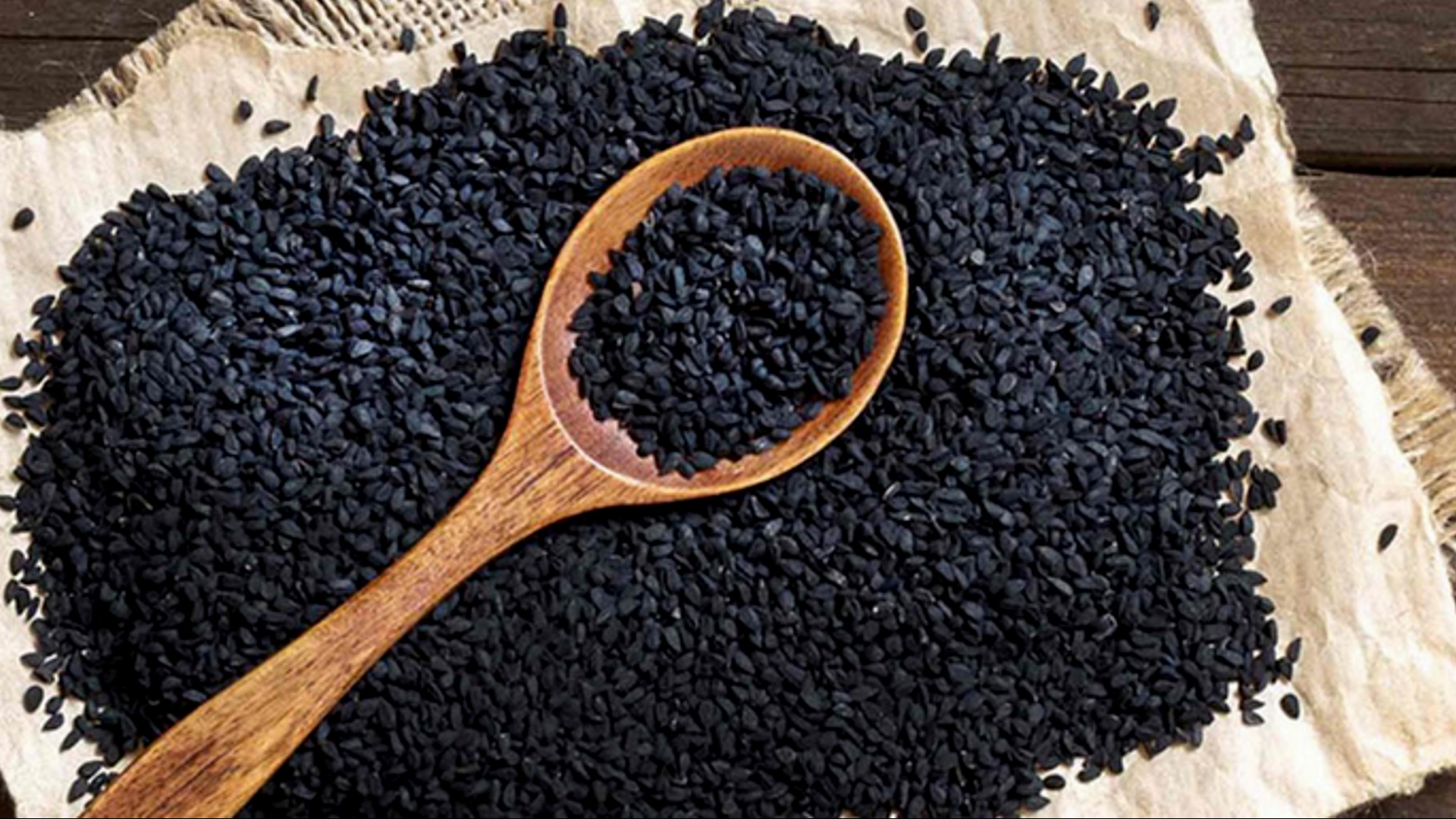
Ancient Remedy: Black Cumin Seed (Nigella Sativa) Benefits for Respiratory & Heart Issues, Overall Health Support

cover image credit: Radfotosonn / pixabay

cover image credit: selarom15 / pixabay

cover image credit: Radfotosonn / pixabay
Black Seed Oil: Ancient Remedy with Modern Benefits
With a documented history of use dating back to the time of the Egyptian pharaohs, Nigella sativa (commonly referred to as black seed or black cumin seed) has tremendous historical significance and therapeutic potential. Mentioned in the Old Testament and in the sayings of the Prophet Muhammad, black cumin seed oil has been used so broadly across the Middle East and Asia that it is considered almost as a panacea for all conditions. Researchers in the last few decades have begun to investigate the potential health benefits of this “miracle herb” and have found that many of the traditional uses of the herb are being corroborated.
The herb contains several active constituents that have been identified, some of the more well-known being thymoquinone and nigellone. Studies looking at the mechanism of action of the active compounds have shown that they possess powerful antioxidant and anti-inflammatory qualities and play a role in directly modulating immune function. Furthermore, several studies have shown that black seed oil benefits allergies; researchers found that thymoquinone has anti-allergic properties through potent antihistamine effects, preventing its release from immune cell membranes. Additional research shows that black cumin seed oil for lung health has a profound bronchodilation effect (relaxation of the smooth muscle tissue lining the airways of the lungs), ensuring clear, relaxed airways for easy breathing and help with relieving coughing.
Anti-inflammatory and Antioxidant Activity
Recent investigations show several beneficial effects of black seed oil for inflammation. One of the major active compounds in black seed is thymoquinone. Several research studies show that thymoquinone can suppress the production of inflammatory mediators as well as oxidative stress. In immune cell studies, thymoquinone was found to inhibit 5-lipoxygenase (5-LOX) and its byproducts, thereby signifying a strong anti-inflammatory effect. While 5-LOX is a key enzyme promoter of inflammation and inhibition of 5-LOX is an essential target of several anti-inflammatory therapies, the downstream effects of reducing 5-LOX activity by black seed oil also caused a reduction in the production of eicosanoids, additional chemical messengers of the inflammation response.
Additional studies in white blood cells of the immune system found that the administration of black seed extracts reduced the production of cyclooxygenase (COX) enzymes and byproducts, supporting the ability of black seed oil to provide comprehensive inflammation support across multiple key pathways.
The anti-inflammatory effects of black seed are also supported by the results of human clinical studies. In one study, participants suffering from joint health issues who supplemented with a black seed preparation for one month showed lowered levels of pro-inflammatory white blood cells, improved joint function, and a reduction of joint swelling and stiffness versus placebo. These effects indicate a potent reduction of inflammation with black seed supplementation.
Moreover, research studies suggest that black seed extracts can have a direct impact on normalizing inflammation in the lungs. In an animal study on allergic asthma, black seed administration reduced lung inflammation and peripheral blood eosinophil count.
Immune enhancement
Black seed oil exerts powerful effects for supporting the immune system. Nigella sativa extracts are known to support both arms of the immune system by promoting strong innate and adaptive immunity. In a clinical study, the administration of black seed powder for 4 weeks led to significant improvements in immune function. The ratio of CD4+/CD8+ T cells significantly improved and an increase in natural killer cell function was also noted.
In animals whose immunity was experimentally suppressed, feeding them black seed in an oil form was found to restore immune function back to normal levels. A further study in animals whose immune systems were chemically compromised showed that black seed oil administration decreased antibody responses (Immunoglobulin A, Immunoglobulin M) and the levels of complement C3, supporting an immune regulatory role of the extract.
Anti-Allergy and Bronchodilation
Black cumin seed and its constituents act as potent inhibitors of histamine and as smooth muscle relaxants, which makes it well-suited for acute and chronic lung and sinus conditions. As histamine is a key trigger for allergy symptoms, research on the black seed constituent nigellone has found that it has excellent antihistamine effects in small concentrations. Nigellone interacts with immune cells to prevent release of histamine by working as a calcium channel blocker. As histamine release involves calcium channels, preventing calcium uptake into cells reduces histamine release, resulting in inhibition of allergic reactions.
Black seed also acts as a muscle relaxant, which makes it an effective bronchodilator, allowing airways to relax and stay open in lung conditions including asthma and others. Thymoquinone has shown bronchodilator effects in at least 6 separate studies, while a randomized controlled trial in individuals with asthma showed that even a single dose of black seed extract led to a short-term bronchodilation effect.
These core properties are likely responsible for the beneficial effects of black cumin seen in recent clinical studies. These trials reveal that the herb has significant potential in treating lung and sinus conditions. Some of the more well-studied benefits of black cumin for allergic rhinitis and asthma are highlighted below:
- Allergic rhinitis: A condition characterized by inflammation of the nasal sinuses secondary to seasonal or year-round allergen exposure, several human studies have found that black cumin seeds are useful for its treatment and prevention. Symptomatic improvement with black cumin seed included reductions in red, watery eyes, nasal congestion, runny nose, sneezing and itching. This is likely because of black cumin’s antihistamine and anti-inflammatory actions.
- Asthma: Supplementing asthma sufferers with black cumin seeds has been evaluated in multiple trials. Individuals taking black cumin seed extracts showed improvement in the clinical symptoms associated with asthma as well as in lung function tests. In addition, bronchodilator effects (keeping airways open) were also seen in some studies, leading to improved ability to breathe effortlessly. Other investigators noted reduced inflammation in the lungs as well as improvements in forced expiratory volume (FEV1), a measure of the ability to breathe out with ease.
Since effective therapeutic options for these allergic conditions are often limited or are rife with potential side effects, supplementing with black cumin seed could provide an additional tool for those looking to support lung and sinus health during the spring and fall when symptoms are exacerbated or year-round for prevention. Used alone or with other conventional and natural approaches, black cumin seed could be a useful option to reduce the allergic aspects associated with these health conditions and improve breathing and lung function.
See related articles:
Black Cumin: Healing People for Thousands of Years by Olivia Cook, Food is Medicine
What Is This Tiny Black Seed and What Is It Good For? by Dr. Joseph Mercola
Will Black Seed Oil Make Risky Asthma Medication Obsolete? by Jude Henry, Natural News
9 Proven Black Seed Oil Benefits that Boost Your Health by Dr. Josh Axe, DC, DNM, CN
The Black Cumin Seed or “Nigella sativa” Ancient Cures by Fehmida, Ink+Ocean Botanicals
cover image credit: Mountainhills / Wikimedia Commons

Truth Comes to Light highlights writers and video creators who ask the difficult questions while sharing their unique insights and visions.
Everything posted on this site is done in the spirit of conversation. Please do your own research and trust yourself when reading and giving consideration to anything that appears here or anywhere else.











